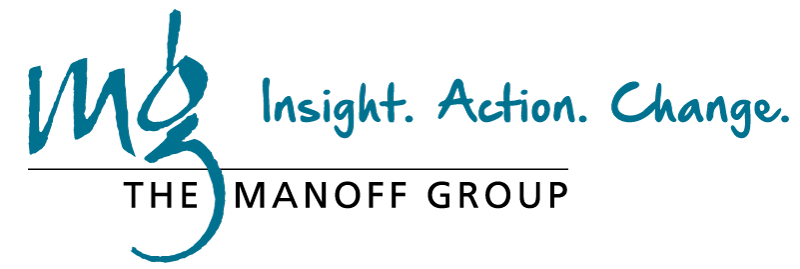Search Results for
"Our Baby is my Responsibility, Too." Fathers in Papua New Guinea Embrace Skin-To-Skin Contact and Relish Their New ExperienceView Original Source
The Big Idea: Managers who oversee interventions that help to save the lives of babies who are premature and/or suffer low birth weight typically target mothers to prevent hypothermia – especially when there is no incubator available. Engaging fathers also to provide skin-to-skin contact with the newborns ensures their health and survival.
A 6-Week School Curriculum Improves Boys’ Attitudes and Behaviors Related to Gender-Based Violence in KenyaView Original Source
The Big Idea: Gender-based violence contributes to lower use of health services. While gender-based violence can be prevented through girls’ and women’s empowerment, advocacy and home visitations, and it also needs to be addressed simultaneously with boys and men as GBV often occurs in the context of male peers who demonstrate negative attitudes toward women.
A Review of Evidence for Bystander Intervention to Prevent Sexual and Domestic Violence in UniversitiesView Original Source
The Big Idea: Violence against women is a critical concern for public health. The growing evidence base for the bystander intervention approach to preventing sexual and domestic violence in university settings shows the potential to engage men, as well as women, positively in ending violence against women.
Behavior Change Communication Model Enhancing Parental Practices for Improved Early Childhood Growth and Development Outcomes in Rural Armenia - A Quasi-Experimental StudyView Original Source
The Big Idea: Early childhood development (ECD) interventions to enhance parent practices in children's health and growth, protection from neglect, abuse, and injury have lifelong impact on health, learning, economic productiveness outcomes. Many programs consider integrating ECD through existing health delivery platforms. This study reviews how this can be done effectively and the results of this integration.
Cash, Food and Health Care All Help the Poor, but Something's Still MissingView Original Source
The Big Idea: When aid breaks the cycle of poverty, it is key to raise self-confidence and engender a new sense of possibilities that people then work harder to achieve. This article shares the Graduation Approach in Paraguay that aims to “graduate” people from poverty, not just treat its symptoms. The first evaluation of this program found a 433 percent economic return on investments, maintained after 10 years.
Changes in Couples’ Communication as a Result of Male-Involvement Family Planning InterventionView Original Source
The Big Idea: Men are often the decision-makers about contraceptive use but programs usually focus on women. Men often lack the knowledge or skills to make informed decisions as a couple. By engaging men through peers, couples can make joint decisions on spacing births.
EDUCATE! Riding the Reform Wave to Scale Up Youth Entrepreneurship in Uganda View Original Source
The Big Idea: The mismatch between what is taught in school and what skills are demanded by the labor market is far too common. This program narrows the gap by providing practical, real-world skills and experience for youth during the final two years of secondary school so that young people are equipped to begin employment.
Effect of a Behaviour-Change Intervention on Handwashing with Soap in India (Superamma): A Cluster Randomized TrialView Original Source
The Big Idea: In most countries, knowledge about the health benefits of handwashing with soap is high, but does not correspond to actual behavior change. Emotional, non-health messages focused around disgust were shown to be more effective, have a longer-lasting impact on handwashing behaviors, and have the potential to achieve sufficient scale for population-level impact.
Effects of Parents Training on Parents’ Knowledge and Attitudes about Adolescent Sexuality in Accra Metropolis, GhanaView Original Source
The Big Idea: Adolescents may hesitate to use family planning methods out of expressed or implied lack of parent acceptance. Training parents of adolescents can improve their own knowledge and attitudes toward adolescent use of family planning services and enhance their skills in communication with adolescent children on these issues.
Entrepreneurs and Value-Added Foods: How Capacity Building is Boosting Trade and Productivity in MalawiView Original Source
The Big Idea: To improve food product quality and productivity, and grow markets, farmers need reliable buyers and processors need reliable suppliers of raw materials. An initiative Malawi is helping value-add processers identify and meet opportunities in bringing the product to market and contribute to the nation’s overall economic and nutritional health.
From a Classic Training Approach to an On-Site Training Approach Improves Provider Knowledge and Skills: Lessons from RwandaView Original Source
The Big Idea: Classic classroom-based trainings show limited effectiveness in improving provider skills, and disrupt busy health facilities when providers are called out for multiple trainings. Alternative models to strengthen provider competency and confidence in delivering family planning services may include on-site training.
From a Glass of Milk to a Goat Value Chain in Guatemala's Western HighlandsView Original Source
The Big Idea: Goat milk can be an important addition to the nutritious diets of rural families and as a product for industrial cheese production. In the Western Highlands of Guatemala, a program that supported households with goats found that and understanding benefits of goat raising was not enough until addressing all of the factors needed to scale this practice.
From Struggling Milk Producer to Thriving Entrepreneur in Burkina FasoView Original Source
The Big Idea: Increased access to animal source foods are critical to improved nutrition. In some places, like rural Burkina Faso, milk is not always available. Small business are trying to fill this need. This post discusses the factors associated with limitations to starting and maintaining small businesses that provide locally produced milk especially for women entrepreneurs.Getting Strategic with Interpersonal Communication: Improving Feeding Practices in BangladeshView Original Source
The Big Idea: Managers who oversee large-scale infant and young child feeding programs may rely primarily on mass media to spread the word about life-saving infant and young child nutrition behaviors. Integrating strategic face-to-face communication that engages women and their families with mass media can accelerate positive outcomes.
Improving Teacher Quality: Lessons Learned from Grantees of the Partnership to Strengthen Innovation and Practice in Secondary EducationView Original Source
The Big Idea: The quality of the teaching force is the single most influential school-based factor in promoting learning. Strengthening educational systems to deliver quality teaching requires answers questions such as how to motivate teachers in resource-constrained environments. This review of eight programs identifies a variety of intrinsic and extrinsic factors that lead to greater motivation and teaching quality.
Millennial’s Perspective of Clicker Technology in a Nursing Classroom: A Mixed Methods Research StudyView Original Source
The Big Idea: Performance-based trainings of health provider need to be as effective and efficient as possible given resource constraints. Trainers can actively engage learners and improve outcomes through non-judgmental, immediate feedback using the simple clicker technology. Clickers also enhance participation, protect anonymity, and promote learning of concepts.
Peer-Driven Quality Improvement among Health Workers and Traditional Birth Attendants in Sierra Leone: Linkages between Provider’s Organizational Skills and RelationshipsView Original Source
The Big Idea: Managers who are tasked with improving health in low-resource settings are often faced with shortages of trained health care providers as well as challenges with health delivery systems. Health providers and community workers, such as Traditional Birth Attendants, often lack mutual understanding and communication channels, resulting in missed opportunities and poor quality of care. Peer-based groups of providers that strengthen organizational and relationship building skills have the potential to improve the quality of care.
Promoting Clean Hands Among Children in Uganda: A School-Based Intervention Using "Tippy-Taps"View Original Source
The Big Idea: Handwashing with soap programs often focus on education without consideration of the enabling environment (i.e., water). School-based programs that teach and equip children to build simple and affordable handwashing stations have the potential to transform knowledge into behavior. In addition, children can act as agents of change and disseminate this information to their families.
Rape Prevention through Empowerment of Adolescent GirlsView Original Source
The Big Idea: In some communities, sexual assault has reached epidemic proportions, which leads to serious short and long-term health consequences, including early pregnancy, HIV and mental health issues. An empowerment and self-defense course may help adolescent girls to decrease sexual assault and harassment.
Retention and Use of Newborn Resuscitation Skills Following a Series of Helping Babies Breathe Trainings for Midwives in Rural Ghana View Original Source
The Big Idea: Newborn resuscitation skills are vital for birth attendants. Maintaining skills after training is a challenge, especially in low volume rural clinics. A refresher course one year later slows the decay in skills that occurs after an initial training.
The Country Winning the Battle on Food WasteView Original Source
The Big Idea: Cities around the world face challenges with food waste disposal. Seoul, Korea implements a food waste recycling program with impressive results.
The Effect of Farmer Nutrition Schools on Household Food Production and Women's Dietary Diversity in Bangladesh View Original Source
The Big Idea: Even as trends in nutrition improve in rural areas, pregnant and lactating women may lack needed nutrients for their own health and their child’s health and growth. A multi-sectoral model that combined a farmer field school model with nutrition and hygiene education into farmer for the poorest women demonstrated improved results through women’s dietary diversity.
The Effectiveness of Multilevel Promotion of Exclusive Breastfeeding in Rural IndonesiaView Original Source
The Big Idea: Exclusive breastfeeding is influenced by multiple factors at the institutional, social and individual levels. Addressing all of these levels simultaneously using locally tailored strategies can improve the duration and prevalence of exclusive breastfeeding.
The Effects of Antenatal Education on Fear of Childbirth, Maternal Self-Efficacy and Post-Traumatic Stress Disorder (PTSD) Symptoms following Childbirth: An Experimental StudyView Original Source
The Big Idea: Many pregnant women who have suffered from a traumatic past pregnancy/delivery, or are pregnant and preparing to deliver for the first time, may fear or lack confidence in the available services. These feelings affect women’s decisions about service use and trauma after childbirth. Antenatal education programs increase women’s confidence and reduce symptoms of post-traumatic stress disorders (PTSD) following delivery.
Two Promising Social Accountability Approaches to Improve Health in Malawi: Community Score Cards, and National Health Budget Consultation, Analysis and Advocacy View Original Source
The Big Idea: In many countries, effective participation and community voice in health programming remains an obstacle as communities do not know their rights or have channels to share feedback with authorities, and local government may not have full autonomy in budget planning and allocation. The Community Scorecard offers one cost-effective model for strengthening communities’ ability to use information from the local level to the national level in order to hold duty bearers accountable. 

Using a Community-Based Early Childhood Development Center as a Platform to Promote Production and Consumption Diversity Increases Children's Dietary Intake and Reduces Stunting in Malawi: A Cluster-Randomized TrialView Original Source
The Big Idea: Early childhood development (ECD) platforms have the potential to deliver child development and nutrition interventions. This study explored the additional opportunity of utilizing this platform to deliver nutrition-sensitive agriculture support to families with young children.


